Swapping out rose water in your recipes sounds like a puzzle, right? Bold truth: it’s easier than you think. We’ve all been there, mid-recipe, realizing the rose water is either gone or nowhere to be found.
No stress, we’ve got you covered with the top five substitutes that will keep your dishes and drinks on point. Each of these alternatives brings its unique flair to the table, ensuring your culinary creations don’t miss a beat. “Experimentation in the kitchen is the spice of life,” as I always say, and these substitutes are proof positive of that.
Ready to dive in? These aren’t your average everyday replacements; they’re game-changers.
What is Rose Water?

A popular ingredient in Middle Eastern, French and Mediterranean cuisine, rose water comes from the distillation process of rose petals and steam.
It’s a versatile item, and various industries use it in their products.
Besides being a popular culinary ingredient, you can find it in soaps, lotions, creams, and other items.
Rose water also contains medicinal properties and can help treat multiple ailments.
You can add rose water in baked products, ice creams, desserts, salads and a lot of savory dishes.
But when you don’t have it, try the following items mentioned below.
The 5 Best Substitutes For Rose Water
Here’s a detailed comparison of the 5 best substitutes for rose water, along with their key characteristics and proper ratios:
| Substitute | Key Characteristics | Proper Ratio |
|---|---|---|
| Rose Essence | Rose essence is a concentrated form of rose flavoring. It has a strong, floral aroma and flavor similar to rose water. | Use 3-4 drops of rose essence for every teaspoon of rose water in recipes. |
| Jamaica Flower Water | Jamaica flower water, also known as hibiscus or sorrel water, has a tart and floral flavor. | Use an equal amount of Jamaica flower water as you would with rose water in recipes. |
| Vanilla Extract | Vanilla extract has a sweet, aromatic flavor that can complement certain recipes. | Use 1/2 to 1 teaspoon of vanilla extract as a substitute for 1 teaspoon of rose water in recipes. |
| Cinnamon | Cinnamon has a warm and spicy flavor that can add complexity to dishes. | Use 1/4 to 1/2 teaspoon of cinnamon as a substitute for 1 teaspoon of rose water in recipes. |
| Lavender | Lavender has a floral and slightly herbal flavor. It can provide a similar aromatic profile to rose water. | Use an equal amount of lavender as you would with rose water in recipes. |
Now, let’s discuss each substitute in more detail:
1 – Rose Essence
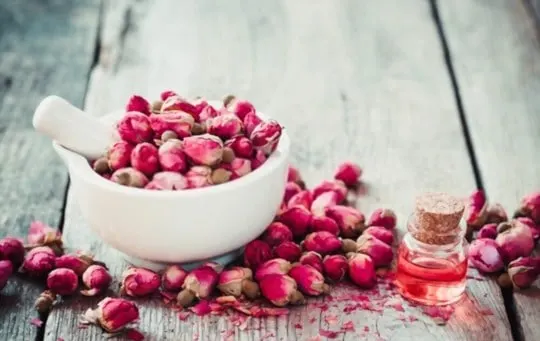
It’s one of the closest to rose water in taste and scent.
However, rose essence is more concentrated, so you have to use it sparingly when substituting it for rose water.
The market has a vast range of products from different brands, so it’s readily available.
When you don’t have rose water, add it to any recipe that calls for the same.
Whether desserts, savory dishes, salads or ice creams, it will give a floral-fruity flavor and make your dish even better.
You can also use rose essence in your skincare regime, bathwater and even make cool drinks.
Suitable ratio.
- 2 tablespoons rose water = 1 teaspoon rose essence.
2 – Jamaica Flower Water
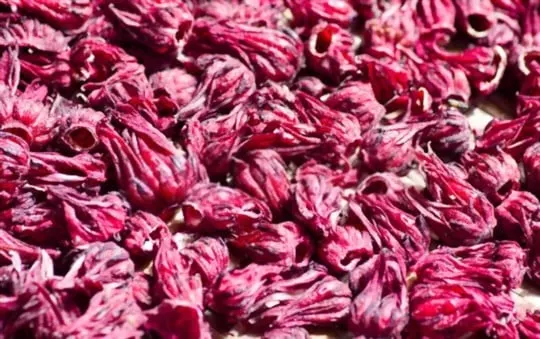
The source of this ingredient is the hibiscus flower, and it can also be a suitable alternative for rose water.
Jamaica flower water also has a floral scent, so your food will smell amazing.
However, you may not have the exact flavor, but that shouldn’t be a problem.
You can use it in most dishes that ask for rose water, including salads, desserts, ice creams, herb teas, sauces and syrups.
Jamaica flower water is primarily popular in Caribbean and Mexican cuisines.
So, your dishes may have an essence similar to food popular in those regions.
One exciting fact about using Jamaica flower water is you don’t have to use more or less than rose water but the exact quantity.
Suitable ratio.
- 1 teaspoon rose water = 1 teaspoon Jamaica flower water.
3 – Vanilla Extract
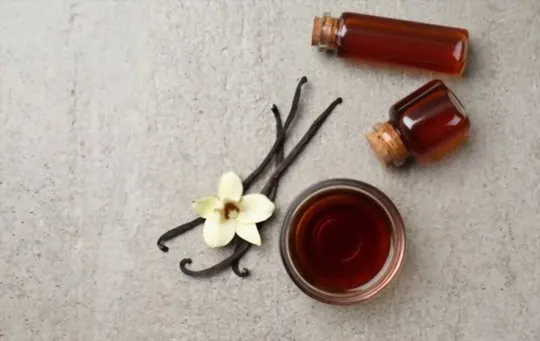
The list won’t be complete without mentioning vanilla extract.
Sweet-scented and flavorful, vanilla is one of the most popular baking ingredients worldwide.
Home cooks and chefs love to use it for two reasons; firstly, because it’s delicious, and secondly, it’s readily available.
Vanilla concentrated is ‘sweeter-smelling than rose water, and it’s also more concentrated.
So, it’s best suited for sweet dishes.
However, some cuisines may use it in a number of savory dishes too.
You can add vanilla extract to cakes, cookies, puddings, ice creams, pancakes, smoothies and fruit salads.
You can also use it in savory dishes if you don’t mind the sweet aroma.
Experts advise adding vanilla when you are about to finish cooking.
The reason is that being too long in the heat can push the flavor compounds to change.
Suitable ratio.
- 1 teaspoon rose water = 1/2 teaspoon vanilla extract.
4 – Cinnamon
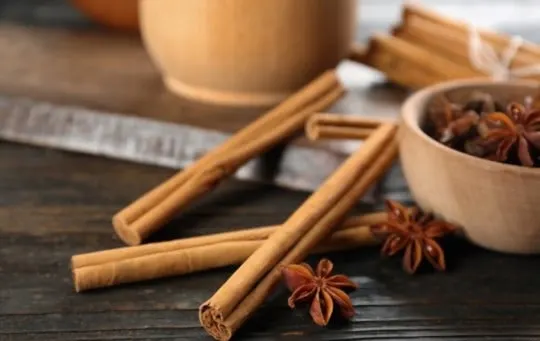
Being very similar in aroma and flavor to rose water, cinnamon can be a good replacement too.
It’s a versatile spice as you can use it in both sweet and savory dishes.
Though commonly used as a spice in desserts, it’s one of the popular spices for savory dishes in Indian and South Asian cuisines.
You can therefore use cinnamon in both desserts and savory dishes according to requirements and preference.
Add it in cakes, cookies, pies, ice creams, smoothies, curries and marinades.
You can also add it to tea and make herbal tea with it.
The aroma and flavor of cinnamon can be overpowering, though.
Therefore, it’s imperative to put less than the asking quantity for rose water.
Besides being flavorful and fragrant, cinnamon also provides health benefits.
It contains anti-inflammatory, antidiabetic and antimicrobial properties.
It also has antioxidants.
Suitable ratio.
- 1 teaspoon rose water = 1/2 teaspoon cinnamon.
5 – Lavender
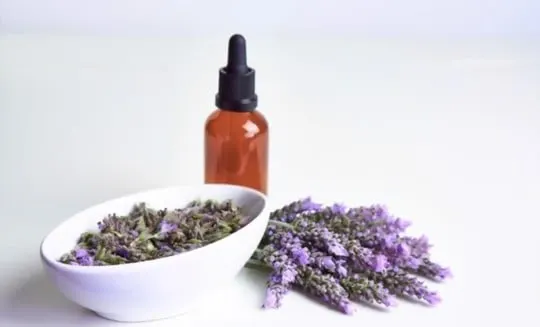
Being an aromatic ingredient, lavender can also substitute rose water in several dishes.
It’s a plant native to the Mediterranean.
In smell, it’s close to cinnamon, while flavor resembles rose water.
So, you can get the taste which you want in any dish that you use the ingredient.
Since it has a floral scent, cooking enthusiasts mostly use it in sweet dishes.
However, some cuisines worldwide also use it in some of their savory dishes.
So, whenever you cook those dishes, add the ingredient.
In savory dishes, it goes pretty well with fatty foods, so you can add it in tuna, salmon, lamb, chicken and turkey.
You can also put it in shrimps and salads.
Suitable ratio.
- 1 teaspoon rose water = 1 teaspoon lavender.
Conclusion
Now that you know the substitutes for rose water, you don’t have to panic even when you don’t have it.
Just use one of the items from the list, and you can come up with a fantastic dish.
If you don’t even have one of those ingredients, you can use lemon juice, cardamom, almond extract, and orange flower water.
But make sure not to put extra quantity, or it can go over power a dish’s flavor.
With so many alternatives, you can use different ingredients for different dishes to make them more diverse.
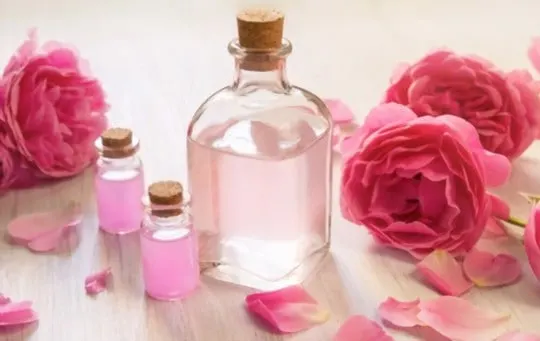
The 5 Best Substitutes for Rose Water
Ingredients
- Rose Essence
- Jamaica Flower Water
- Vanilla Extract
- Cinnamon
- Lavender
Instructions
- Pick your favorite substitute from the list above.
- Follow cooking directions for your selected substitute with the proper ratio of ingredients.

Andrew Gray is a seasoned food writer and blogger with a wealth of experience in the restaurant and catering industries. With a passion for all things delicious, Andrew has honed his culinary expertise through his work as a personal chef and caterer.
His love for food led him to venture into food writing, where he has contributed to various online publications, sharing his knowledge and insights on the culinary world. As the proud owner of AmericasRestaurant.com, Andrew covers a wide range of topics, including recipes, restaurant reviews, product recommendations, and culinary tips.
Through his website, he aims to inspire and educate fellow food enthusiasts, offering a comprehensive resource for all things food-related.

Leave a comment